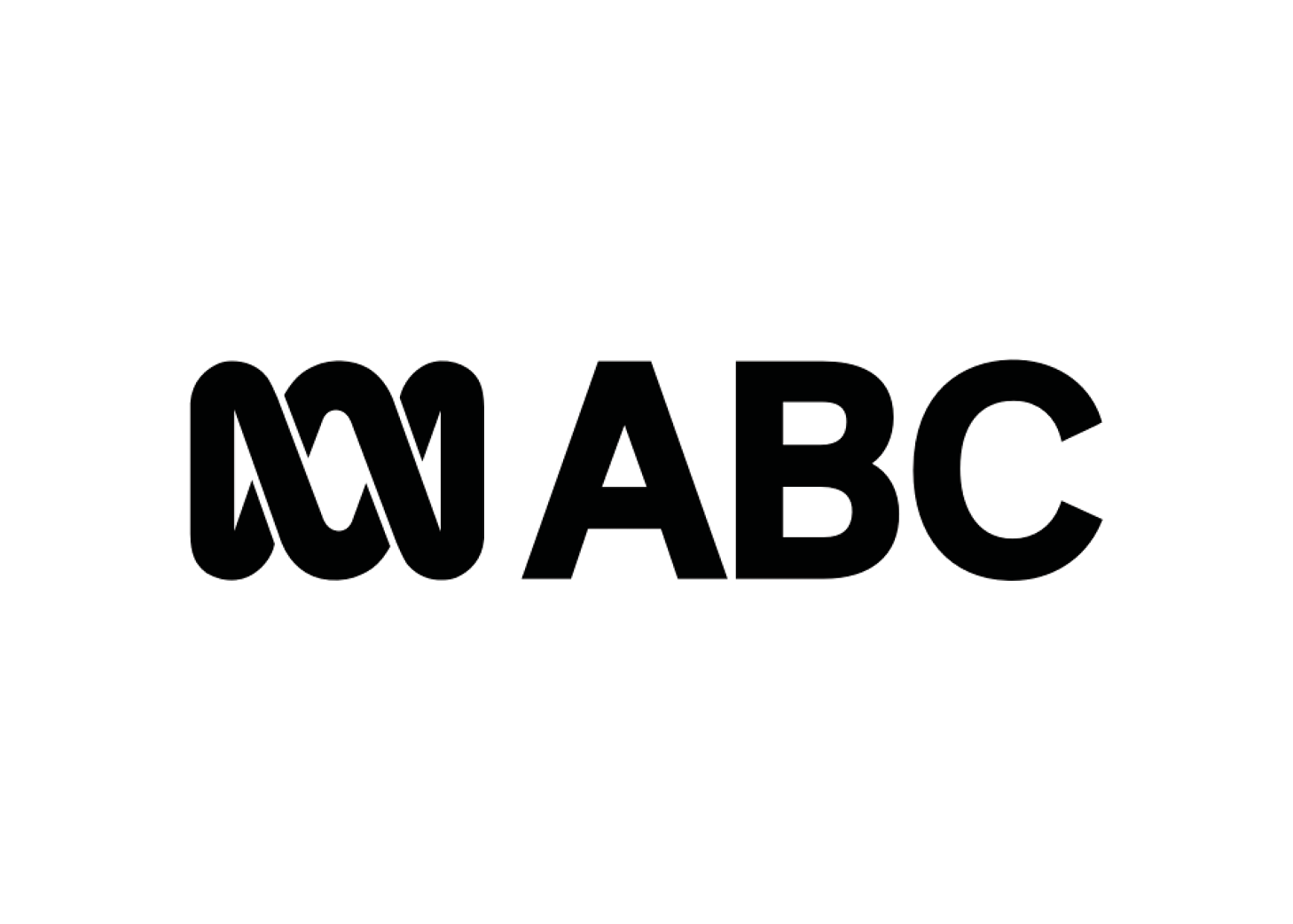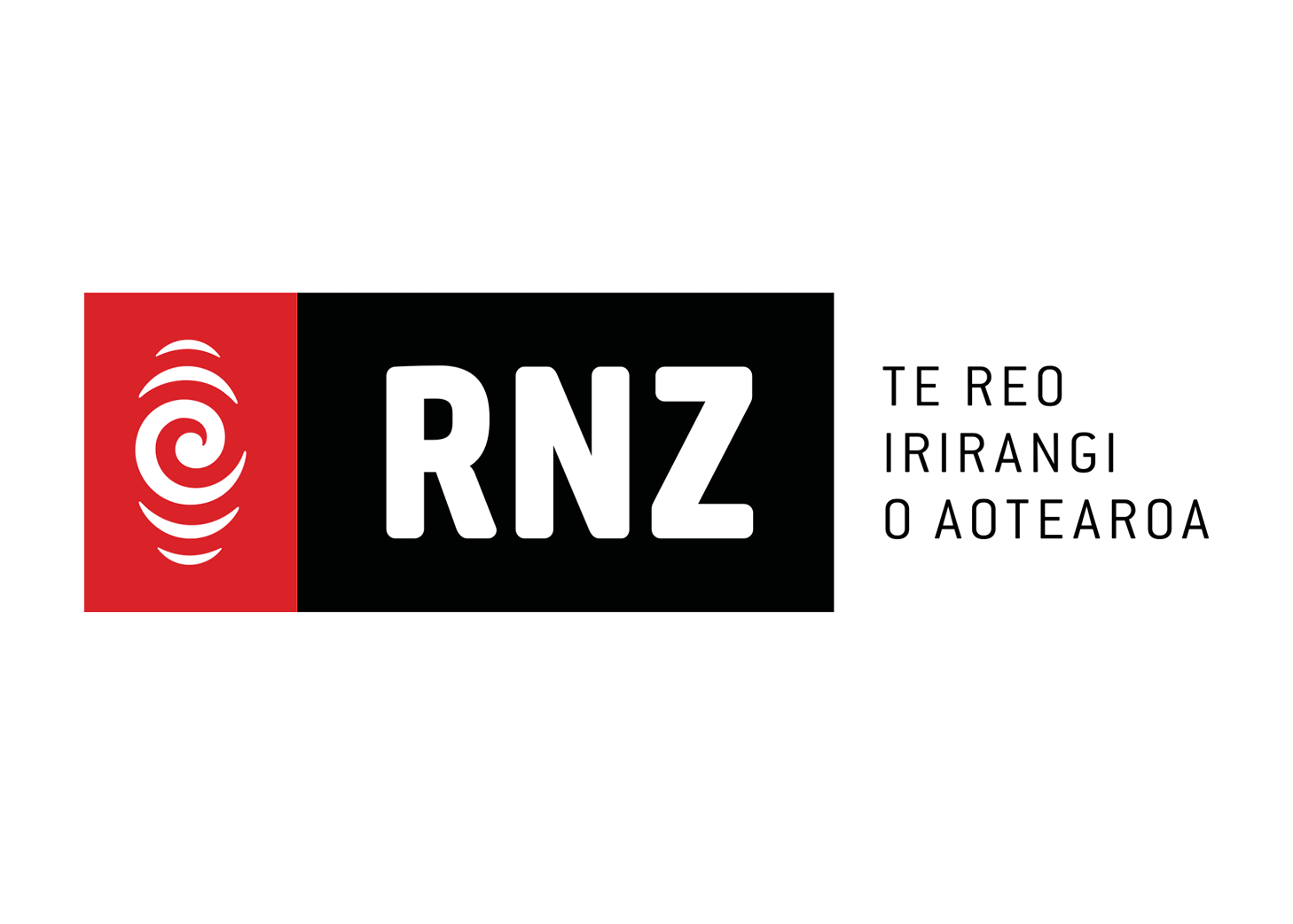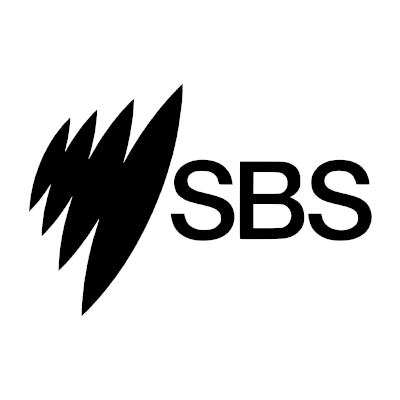Australia, New Zealand & the Pacific
Public Media Worldwide
National Networks
4 national radio networks
56 local radio stations
6 digital radio stations
4 TV channels
International Networks
ABC Australia; English language
international television service
aimed at Asia-Pacific region
ABC Radio Australia; international
satellite and internet radio service
aimed at Asia-Pacific region
Online
Abc.net.au
TV catch up service (iview)
ABC News and Current Affairs Online
ABC Open
Mobile apps
Australian Broadcasting Corporation (ABC)
Radio | Television | Online
#1
Australian digital
news brand since
January 2020
296 hrs
rolling bushfire
coverage
31 Dec 2019 -
13 Jan 2020
79%
of Australians
believe the ABC
performs a
valuable role in
Australia's community
Overview
Updated: March 2022
The Australian Broadcasting Corporation (ABC) is Australia’s largest public broadcaster. In 2022, it celebrates 90 years of operation.
ABC plays a central role during national crises and emergencies with a dedicated emergency service, website and app for preparation, mitigation and coverage. During the bushfire season of 2019-20, Australians turned to their national public broadcaster for trusted news and information, with 73% of people acting on ABC emergency broadcasts. With extensive emergency coverage across television, radio and online services, the broadcaster provided accurate, reliable and emergency coverage to help keep communities safe, despite staff working under incredible pressure and precarious conditions. Between 31 December 2019 and 13 January 2020, the broadcaster covered over 200 emergency events, more than any other broadcaster.
ABC is also dedicated to catering for indigenous audiences by providing news and information relevant to indigenous communities in Australia. Both this service and its multilingual services have helped the organisation’s news services reach new audiences across the continent and the wider Pacific region during the COVID-19 pandemic.
In detail
Click on the headings below for more information
ABC independence is assured by the ABC Board under the Australian Broadcasting Corporation Act 1983. The Managing Director is the Editor-in-Chief who has ultimate editorial power and responsibility.
An excerpt from ABC Managing Director, David Anderson’s new book ‘Now More Than Ever: Australia’s ABC’ explains how the public broadcaster maintains its independence:
The public funding that supports the ABC means there is no actual or perceived pressure to tiptoe around issues that may affect sponsors or advertisers. Lacking subscribers, the ABC can’t be subtly tempted to focus on any particular audience segment or demographic with content that caters to one perspective on the world.
The ABC is opposed to any proposal for a so-called “external” government-appointed ABC ombudsman exercising powers beyond the current role of the Australian Communications and Media Authority. Other major public broadcasters like the BBC and CBC have no comparable external role and it would raise the possibility of government interference, significantly degrading the ABC’s independence and its capacity to perform its democratic function.
The ABC is always accountable to the people of Australia. This accountability is expressed every day through the roles of the six directors (plus the chair) appointed by the government to the ABC board for five-year terms. Today the ABC remains fiercely protective of its editorial independence, delivering trusted public interest journalism through investigative reporting, fact-checking, public health and safety information, and emergency broadcasting.
The organisation receives state subsidies allocated by the Federal Government while maintaining its editorial independence.
Government funding:
2019-2020: A$1,062.3 million – up 1.6% from prior year
2018-2019: A$1,045.9 million – – up 0.2% from prior year
2017-2018: A$1,043.7 million
Other funding sources, including ABC Commercial:
2019-2020: Other funding sources not yet published.
2018-2019: A$62.5 million – down 4% from prior year
2017-2018: A$65.1 million
Source: ABC.net.au
For Australia’s largest public broadcaster, ABC, establishing trust and satisfaction with audiences at home and abroad is all about “specialisation and quality”. 79% of Australians believe the ABC performs a valuable role in the Australian community.
“The ABC’s combined national audience reach across television, radio and online was estimated to be 68.1% over a period of a week in 2021,46 an increase of 0.6 percentage points compared with the ABC’s net reach in 2020 (67.6%). This overall improvement was driven by a growth in reach across all platforms during the COVID-19 pandemic.”
Radio
“Average weekly reach in the five-city metropolitan markets for ABC Radio (including DAB+ stations) was 5.3 million people aged over 10 years in 2020-21, up 175,000 listeners on the 2019-20 result. Audience share was up 1.1 share points on 2019-20 to 24.6%. The tracking study showed 56% of Australians believed the quality of programming on ABC Radio is ‘very good’ or ‘good’.
In 2020-21, its radio network Radio National (RN) recorded an average weekly five-city metropolitan reach of 699,000 and 7.8 million monthly unique podcast downloads (an increase of 16% compared to 2019-20).
Television
“With more viewers than ever turning to digital platforms to consume video, Total TV broadcast reach experienced decline in 2020-21, when compared to 2019-20.” However, its broadcast news channel maintained its position “as Australia’s leading 24-hour news channel with a metro and regional weekly reach of 3.7 million viewers, an increase of 6% compared with 2019-20.”
Digital
ABC’s digital news reaches 50%+ Australians every month
Average daily audiences were up 77% to 2.21 million for ABC NEWS, compared with 2019.
92% believe the quality of ABC’s online content is ‘good’.
[Source: ABC Annual Report 2020/21]
ABC has a dedicated emergency website.
It has recently expanded its emergency broadcasting services to ahead of its 2021/22 bushfire season “to reinforce the ABC’s role as a key source of information during extreme weather events.”
For more information about their extensive coverage, click here.
In February 2022, the Australian government announced a decision to reverse the indexation freeze that was imposed on ABC and SBS’s funding in 2019. From July, ABC will receive $3.3 billion over the next three years. The figure includes $45.8 million for the broadcaster’s Enhanced Newsgathering Programme (ENG) to continue investment in regional public interest journalism.
Find out more: Explainer: ABC funding freeze reversed
National Networks
RNZ National
RNZ Concert
Parliamentary channel
International Networks
RNZ Pacific
Online
Radio New Zealand (RNZ)
Radio | Online
75%
of New Zealanders
used RNZ
in 2019
89%
of audience
trust RNZ
2019
145%
Daily traffic
growth during
COVID19
Overview
Updated: March 2022
Established in 1995, RNZ is the only commercial-free public service broadcaster in New Zealand. Despite its relatively young age, RNZ has the highest level of trust of any media organisation in the country and an extensive reach both domestically and overseas.
RNZ sets out to make its content “challenging, innovative and engaging.” Its flagship channel, RNZ National, provides news, current affairs, feature documentaries and entertainment. In its commitment to reflect and promote New Zealand’s cultural and ethnic diversity, RNZ also provides Maori-specific broadcasts and online content. It is also a key international broadcaster in the South Pacific. Through RNZ Pacific, the public broadcaster provides news and programming to the Pacific region, with 21 Pacific broadcasters re-broadcasting RNZ Pacific. In 2019, it broadcast 8,723 hours of Pacific content.
During the COVID-19 pandemic, the public broadcaster received high ratings for its coverage: it recorded an increase in traffic to the RNZ website at the start of the pandemic in March 2020, up 114% from February.
In detail
Click on the headings below for more information
RNZ is mostly government funded with a small proportion of its income generated from third party revenue.
- Government funding: $43,375,000 (2018: $38,959,000)
- Other revenue: $2,263,000 (2018: $2,350,000)
(Other revenue consists of rental revenue from property leases, co-siting revenue, interest income and other income)
RNZ National and Concert are funded by New Zealand On Air (an independent government funding agency) and RNZ Pacific is funded by the Ministry for Culture and Heritage.
Source: RNZ Annual Report 2019
New Zealand’s public radio station, RNZ, has the highest level of trust of any media organisation in the country. It recorded an increase in listeners in 2021, with 626,700 New Zealanders tuning into RNZ National weekly. From its own research, it found that 85% of New Zealanders aged 18 and over are aware of RNZ content from encountering it on at least one digital platform. RNZ delivers its content by way of content partnerships – reinforcing and amplifying its role as one of New Zealand’s most trusted sources of information in the Covid-19 era. As RNZ says, “In a time of partisanship and division, it’s great to celebrate the power of RNZ, and public media in general, to provide news and information citizens can trust. News and information which they do trust.”
Online Audiences for rnz.co.nz:
- In a typical month in 2019 almost 3 million users visited the RNZ website. As a result of the Covid-19 pandemic traffic increased to 7.23million in March, up 114% from February
- On an average week in 2019 847,000 users visited RNZ.co.nz. In the two weeks when the lockdown was announced traffic increased to 2.75m and 3.03m respectively
- Daily traffic has grown to 394,000 users since New Zealand’s first case of Covid-19 was announced, up from 161,000 users on a typical day last year (increase of 145%)
Source: Google Analytics, RNZ.co.nz
App
During 2019 the RNZ app attracted 52,000 users each week, this has increased to 72,000 in 2020, and reached 101,000 during lockdown
Last year RNZ’s Facebook channel typically had 553,000 users each week, so far in 2020 RNZ’s Facebook audience has grown to 936k. In the past five weeks user numbers have ranged from 1.2 million and 2.4 million
- Podcast and audio content downloads/streams
- Downloads of podcasts and other audio from the RNZ website reached 1.8 million last month, up from 1.55m in February
- Plays/downloads of RNZ content on other platforms also shows impressive growth in February (797,000), March (1,096,000) and April (1,144,000)
- In 2019, users of rnz.co.nz streamed 61,000 pieces of audio content each week. Since lockdown this has increased to more than 90,000, almost 50% higher than last year
https://www.rnz.co.nz/about/audience-research
After discussions about a new public media entity in New Zealand were postponed due to the COVID-19 pandemic, the New Zealand government has announced details of the new public media entity that will replace RNZ and government-owned, commercial broadcaster, Television New Zealand (TVNZ). The aim is to A Government Group consisting of a group of eight media experts was established in March, and had been tasked with exploring the viability of a new public media entity. The plan is for the new organisation to be operational by the middle of 2023. Broadcasting Minister, Kris Faafoi said it would be “built on the best of RNZ and TVNZ, to future-proof public media for New Zealanders for decades to come.” However there have been concerns about its potential mixed model funding structure and independence, and other specific details.
Read our latest report: New Zealand to establish new giant public media entity
Read more: TVNZ, RNZ merger a ‘watershed’ moment for NZ media
RNZ has also enhanced its local news coverage with the establishment of a Local Democracy Reporting (LDR) programme in 2019.
National Networks
5 TV channels
7 Radio stations
Online
https://www.sbs.com.au
Social media
SBS On Demand
Special Broadcasting Service (SBS)
Radio | Television | Online
68
SBS provides
content in 68
languages
90%
audiences agree
SBS helps Aus to
be more successful
multicultural nation
6%
growth in
audience trust
in 2019-2020
Overview
Updated: June 2021
With a specific remit to promote diversity, SBS is considered as Australia’s “most diverse broadcaster” and the “world’s most linguistically diverse public broadcaster.” Its brand strapline is: ‘A world of difference’. Funded through a mix of federal and commercial sources, SBS provides a vital public service to reflect the diversity of Australia and ensure social cohesion.
SBS offers a diverse range of programming, from news and current affairs and documentaries, to drama, entertainment, sport, and food. NITV – “the home for First Nations storytelling in Australia” – provides programming “through a unique Indigenous lens.”
One of SBS’ five core values is being ‘audience-obsessed’. Outside of COVID-19 limitations, SBS frequently holds monthly ‘Meet the Audience’ sessions to gather insights from audiences that help to inform marketing and product decision-making. In 2019, it organised ‘Meet the Broadcaster’ events, inviting creative, community and government stakeholders to find out more about SBS’ content, services, and strategies. SBS has many other community outreach projects and partnerships with local organisations to further its work on social inclusion and corporate social responsibility (CSR).
In detail
Click on the headings below for more information
SBS’s Board of Directors exists to ensure the independence of SBS and its efficient and cost-effective functioning, decide policies and strategies, that it works closely with Australia’s other public broadcaster (ABC), and that it fulfils its Charters’ responsibilities. Other duties undertaken by the Board are outlined in section 10 of the SBS Act.
SBS is funded partly through federal sources and by generating its own revenue through advertising and the sale of goods and services. In 2019-2020, it received an appropriation from the government of $290.054 million (70.7% of its operating revenue) and generated $120,398 (28.9%) million in sales and advertising.
11.9 million Australians reached on TV each month across the SBS network.
2.2 million Australians reached by NITV each month.
94% of audiences say SBS helps them find content they couldn’t find anywhere else.
Serves around 97% of the population.
Trust in SBS News increased by six percentage points in 2019-20. According to RISJ’s Digital News Report 2020, it is the second most trusted news brand in Australia (71%), just below ABC News.
SBS Radio offers programming in 68 languages for audiences whose first language is not English.
1451 employees.
37.5% of SBS employees were born overseas.
SBS reacted to the early phases of the COVID-19 pandemic by launching a dedicated multi-lingual COVID-19 portal in 63 languages. It has experienced impressive audience growth, recording over 12million plays and podcast downloads in March and April 2020 and increased traffic online.
Header Image: The SBS building in Melbourne’s Federation Square. Image: Philip Bouchard/Creative Commons


